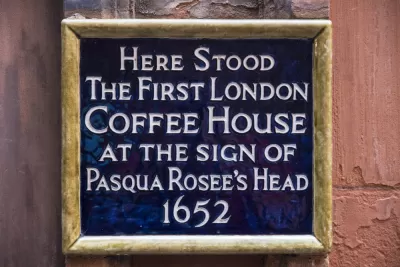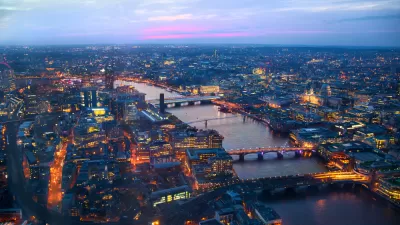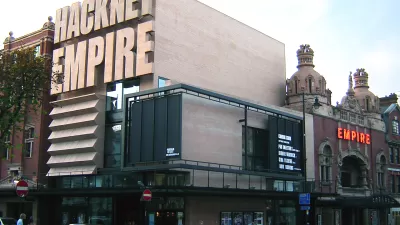Walkability makes markets! Scott Bernstein tells the Lloyds of London story from the urbanist's perspective.

"Around 1650, coffee came to London. The refreshing and slightly habit forming beverage was a big hit. A new kind of non-alcoholic public house — the coffee house — was quickly invented."
"London was a walking city, only the wealthy and businesses had personal transportation. And the weather was famously chancey. So a smart entrepreneur came up with a way of scouting locations."
"He looked for groups of people transacting business on the sidewalk, and those became coffeehouse locations—that was one smart business strategy!"
Bernstein continues to make the connection between urban form and the birthplace of the London stock exchange. Oh, and of course, the rise of the coffee house.
FULL STORY: When Coffee Came to London (Not a Starbuck’s story)

Planetizen Federal Action Tracker
A weekly monitor of how Trump’s orders and actions are impacting planners and planning in America.

Maui's Vacation Rental Debate Turns Ugly
Verbal attacks, misinformation campaigns and fistfights plague a high-stakes debate to convert thousands of vacation rentals into long-term housing.

San Francisco Suspends Traffic Calming Amidst Record Deaths
Citing “a challenging fiscal landscape,” the city will cease the program on the heels of 42 traffic deaths, including 24 pedestrians.

Amtrak Rolls Out New Orleans to Alabama “Mardi Gras” Train
The new service will operate morning and evening departures between Mobile and New Orleans.

The Subversive Car-Free Guide to Trump's Great American Road Trip
Car-free ways to access Chicagoland’s best tourist attractions.

San Antonio and Austin are Fusing Into one Massive Megaregion
The region spanning the two central Texas cities is growing fast, posing challenges for local infrastructure and water supplies.
Urban Design for Planners 1: Software Tools
This six-course series explores essential urban design concepts using open source software and equips planners with the tools they need to participate fully in the urban design process.
Planning for Universal Design
Learn the tools for implementing Universal Design in planning regulations.
Heyer Gruel & Associates PA
JM Goldson LLC
Custer County Colorado
City of Camden Redevelopment Agency
City of Astoria
Transportation Research & Education Center (TREC) at Portland State University
Jefferson Parish Government
Camden Redevelopment Agency
City of Claremont





























